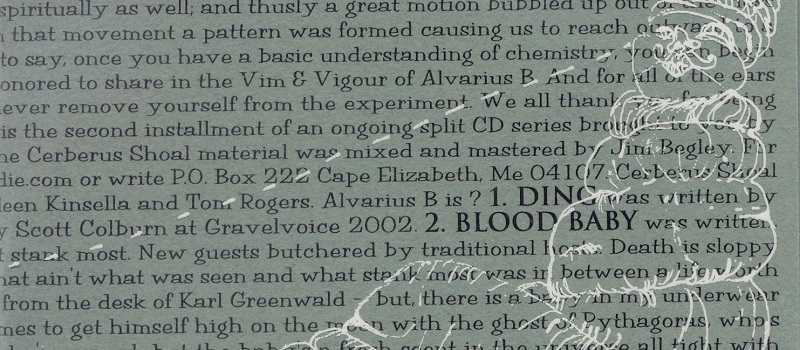The keyboards let out a sort of soft and gentle moan, a low rumble of emotion, as fingers walk slowly over the fret-board and strings of a banjo. Darren Richard’s voice, bordering on almost a soulful cry, pushes out the words.
“Outside the night’s asleep and the palms are still, not the storm they had planned for us,” he sings, “Alone now, I’m not so sure whose comfort came when you gave up your life here with us.” And then, the keyboards and strings still working in time, a chorus of voices — all of them Richard, carefully multi-tracked — slowly climb as spare notes on what sounds like a xylophone ring out.
It’s so painfully tender that it’s almost unbearable, the hymns and elegies of some long lost time and place.
This is Pinetop Seven.
Born in the mid-90’s as the brainchild of Darren Richard and fellow kindred spirit Charles Kim, Pinetop Seven seem to strive to capture the sounds and senses of a lost American frontier. Though both Richard and Kim are multi-instrumentalists, they’ve enlisted the help of others along the way, including Ryan Hembrey, known for his work as an upright bassist with crystalline-voiced Edith Frost, and Ken Vandermark of the Vandermark Five.
Walking the fine line between nostalgic Americana and compositional experimentation, Pinetop Seven sound like no other band you’ll ever hear, an ensemble that relies on the warmth of acoustic guitars, banjos, castanets and piano as much as it does on the shadowy tones of haunting vocals, cello, and bass clarinet. They released two records before reaching full maturity with the majestic “Rigging the Toplights” (Atavistic/Truckstop Records, 1998), at which point Kim decided to move on, posing the question: Could the band survive — and grow — without him?
On Pinetop Seven’s latest offering, “Bringing Home the Last Great Strike” (Atavistic/Truckstop Records, 2000), Richard and Hembrey, as well as a cast of others, have that question answered in spades, proving that is possible to improve on near-perfection by crafting 13 songs that shimmer as much as they shuffle and soar.
The record’s opener, “As The Mutiny Sleeps,” is an instrumental introduction that employs the band’s cinematic scope of sound, meshing cello, trumpet and clarinet with banjo, bells, and glockenspiel. Even from the beginning, the album’s 45 minutes and change announce themselves as a collection where almost every song feels like a gem.
“A Black Eye To Be Proud Of,” “Ten Thousand to Carlisle Came” and “November, 4 am” move the listener along with guitar, piano, strings, and percussion that are so organic and reminiscent of the soundtrack to an old Western that you can almost hear the wooden floorboards creaking. “And The Dog Longed To Be a Horse” begins only with the sound of an acoustic guitar, and then expands into a plodding, somber meditation on longing. “Mission District” introduces itself as a straight-forward number with whistling keyboards, only to have slowly-climaxing notes on cello and guitar draw Richard’s vocals into a emotive falsetto. “The Palm Acres Parade” is, without question, among the band’s best to date.
What keeps the record feeling fresh and new, however, beyond the band’s wonderful attention to the subtlety of composition, is Richard’s voice, the most unique and effecting that you’ll probably hear in quite a while. It fluctuates with ease between a soft-toned inflection and a plaintive wail, almost as reminiscent of Jeff Buckley’s tender, angelic lightness as it is of Tom Waits’ full-bodied and passionate roar.
On almost every song, his voice is often so good that it hurts.
And rightfully so. Richard has chosen to pair that voice with evocative lyrics that, standing on their own merits, could cause chills. When a song starts with lines like “His eyes looked out through the little crack worked in a wall / How bright the sky on bare, blowing limbs of taller trees,” there’s really nowhere to go but to the skies.
And to the skies is exactly where Pinetop Seven go. By the record’s closing track, the appropriately-elegiac instrumental “Buried In St. Cloud,” the piano, strings and guitar fade to the background, giving way to silence and the memories of Richard’s voice, singing, “Where’s the rock? Where are the hands to help us? Where are the lives we wait everyday for?”
The answer to those questions may still be waiting in the wings, but one thing is abundantly clear: “Bringing Home The Last Great Strike” definitely knows how to strike close to the heart and we can only hope that it’s not this band’s last. The Montclarion, Oct. 12, 2000
-30-




